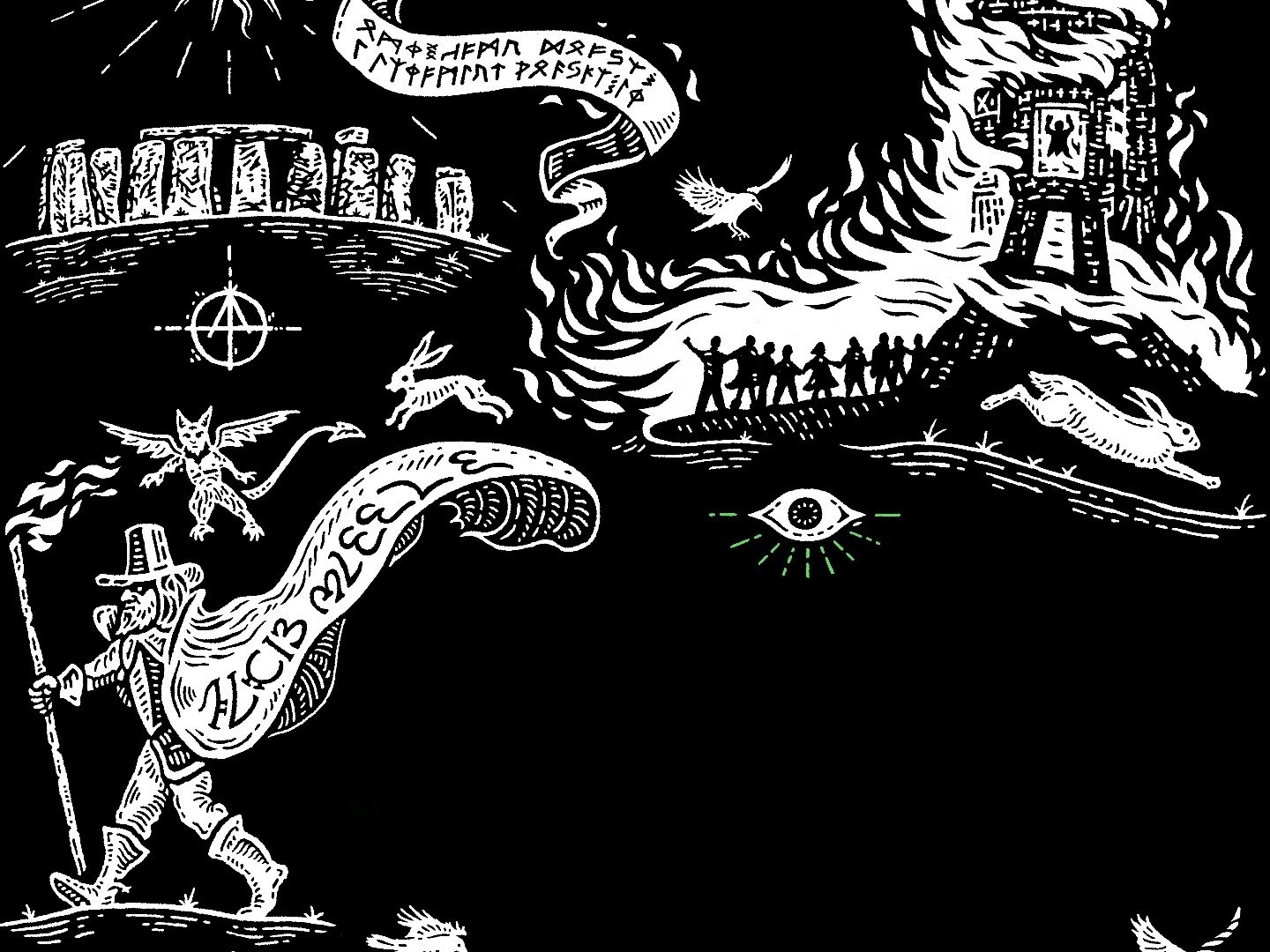 The film is good but maybe goes on a bit. It loses focus a bit when it starts talking about folk horror from places other than Britain. That section felt a bit "Around the World in 88 Crazy Folk Beliefs", coming close to offering little more than a superficial listing of the films.
The film is good but maybe goes on a bit. It loses focus a bit when it starts talking about folk horror from places other than Britain. That section felt a bit "Around the World in 88 Crazy Folk Beliefs", coming close to offering little more than a superficial listing of the films.
 My sense of unease with the folk horror around the world section did get me thinking about what this folk horror stuff is all about. I lean towards the idea that is fundamentally a very British thing, based on the country, particularly England, having a continuous history that has rolled on for hundreds and hundreds of years without the disruption of invasion and the like. That sense of long history means there is a lot of past from which things can resurface. And despite the name, there is more to folk horror than horror featuring elements from folk traditions (e.g. leprechauns exist as threatening entities in Irish folk tales but Leprechaun: Back 2 tha Hood is not folk horror). Some of the non-British folk horror films in Woodlands Dark and Days Bewitched did just seem to be taking some monster from folk traditions and having it eat people, which to me is not what true folk horror is about.
My sense of unease with the folk horror around the world section did get me thinking about what this folk horror stuff is all about. I lean towards the idea that is fundamentally a very British thing, based on the country, particularly England, having a continuous history that has rolled on for hundreds and hundreds of years without the disruption of invasion and the like. That sense of long history means there is a lot of past from which things can resurface. And despite the name, there is more to folk horror than horror featuring elements from folk traditions (e.g. leprechauns exist as threatening entities in Irish folk tales but Leprechaun: Back 2 tha Hood is not folk horror). Some of the non-British folk horror films in Woodlands Dark and Days Bewitched did just seem to be taking some monster from folk traditions and having it eat people, which to me is not what true folk horror is about.
I also found myself taking issue with the claim by one of the commentators that folk horror asks "what if the old ways were right?". I don't think any of the great folk horror narratives pose that question. Rather they ask "what if there were nutters who believed the old ways are right?", e.g. people on a Scottish island who think that human sacrifice will guarantee an abundant harvest or East Anglian peasants who think that their neighbours are practising witchcraft and should be executed. Folk horror sometimes presents the followers of the old ways in an almost appealing manner, but you'd have to be a right weirdo to think that their ways are better than the ones science has to offer us.
 That's a lot of grumbling and caveats from me, which is unfortunate and might give the wrong impression that I did not enjoy the film. It is a great piece of work and I think it functions well as both an introduction to the genre and something that triggers debate and thought for people who have more engagement with it. I think it is available on some online streaming patterns and possibly also DVD. I encourage people to seek it out. This might actually be a better film to see at home rather than in the cinema, as you may well find yourself wanting to note down films to check out later.
That's a lot of grumbling and caveats from me, which is unfortunate and might give the wrong impression that I did not enjoy the film. It is a great piece of work and I think it functions well as both an introduction to the genre and something that triggers debate and thought for people who have more engagement with it. I think it is available on some online streaming patterns and possibly also DVD. I encourage people to seek it out. This might actually be a better film to see at home rather than in the cinema, as you may well find yourself wanting to note down films to check out later.
I nominated Woodlands Dark and Days Bewitched in the Best Related Work category in this year's Hugo Awards, but it did not make it to the list of finalists, due to biased political voting.
images:
The Unholy Trinity (The Kim Newman Website: "FrightFest review – Woodlands Dark and Days Bewitched: A History of Folk Horror")
Warwick Davis and friend (Nathan Rabin's Happy Place: "Exploiting the Archives: Control Nathan Rabin: Leprechaun: Back 2 tha Hood")
Woodlands Dark and Days Bewitched (Rotten Tomatoes)
No comments:
Post a Comment